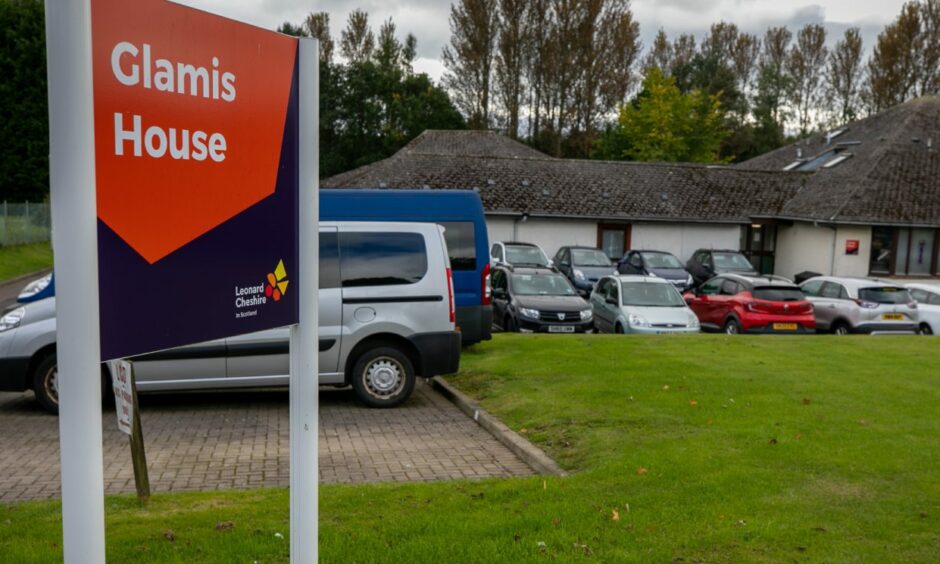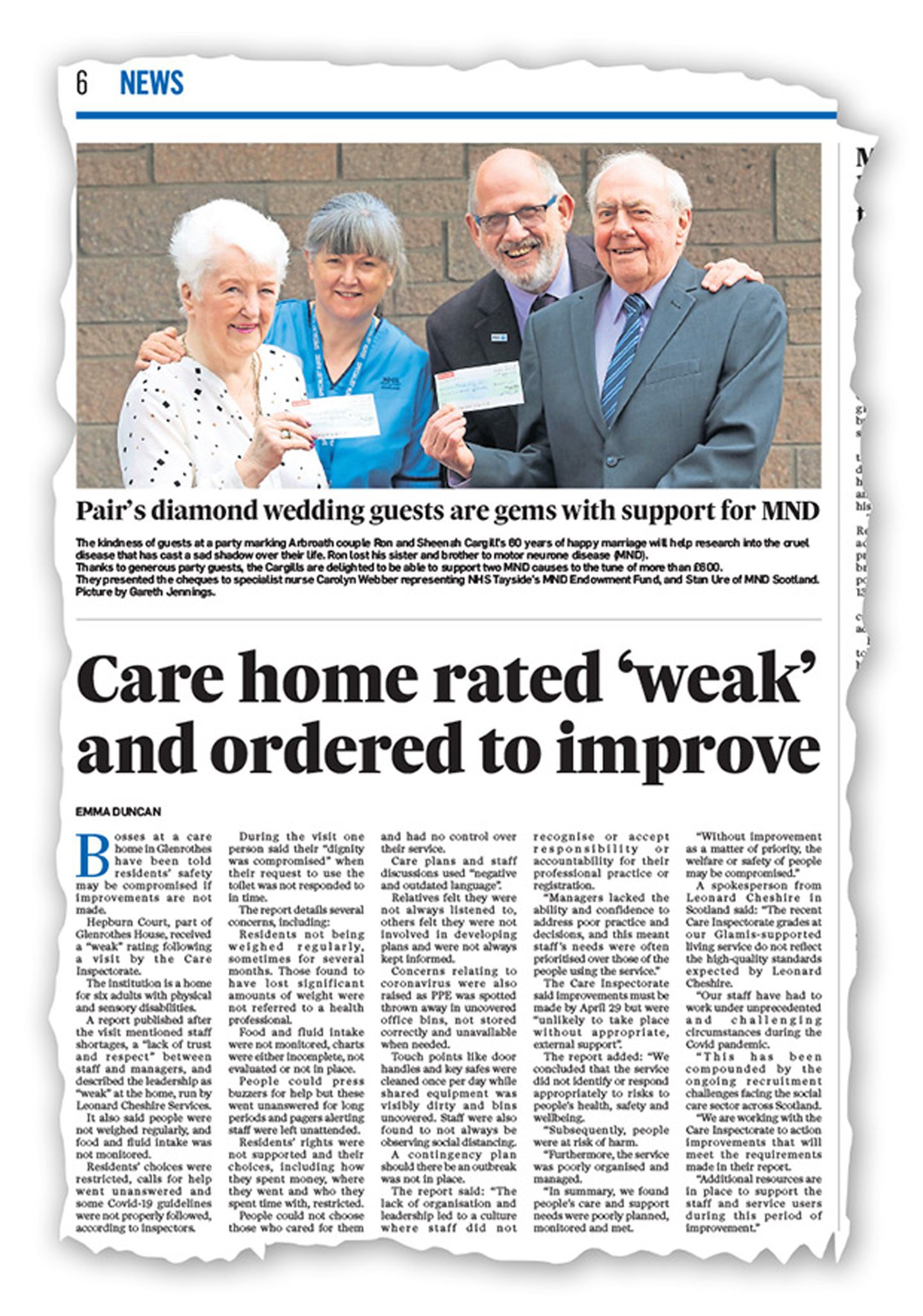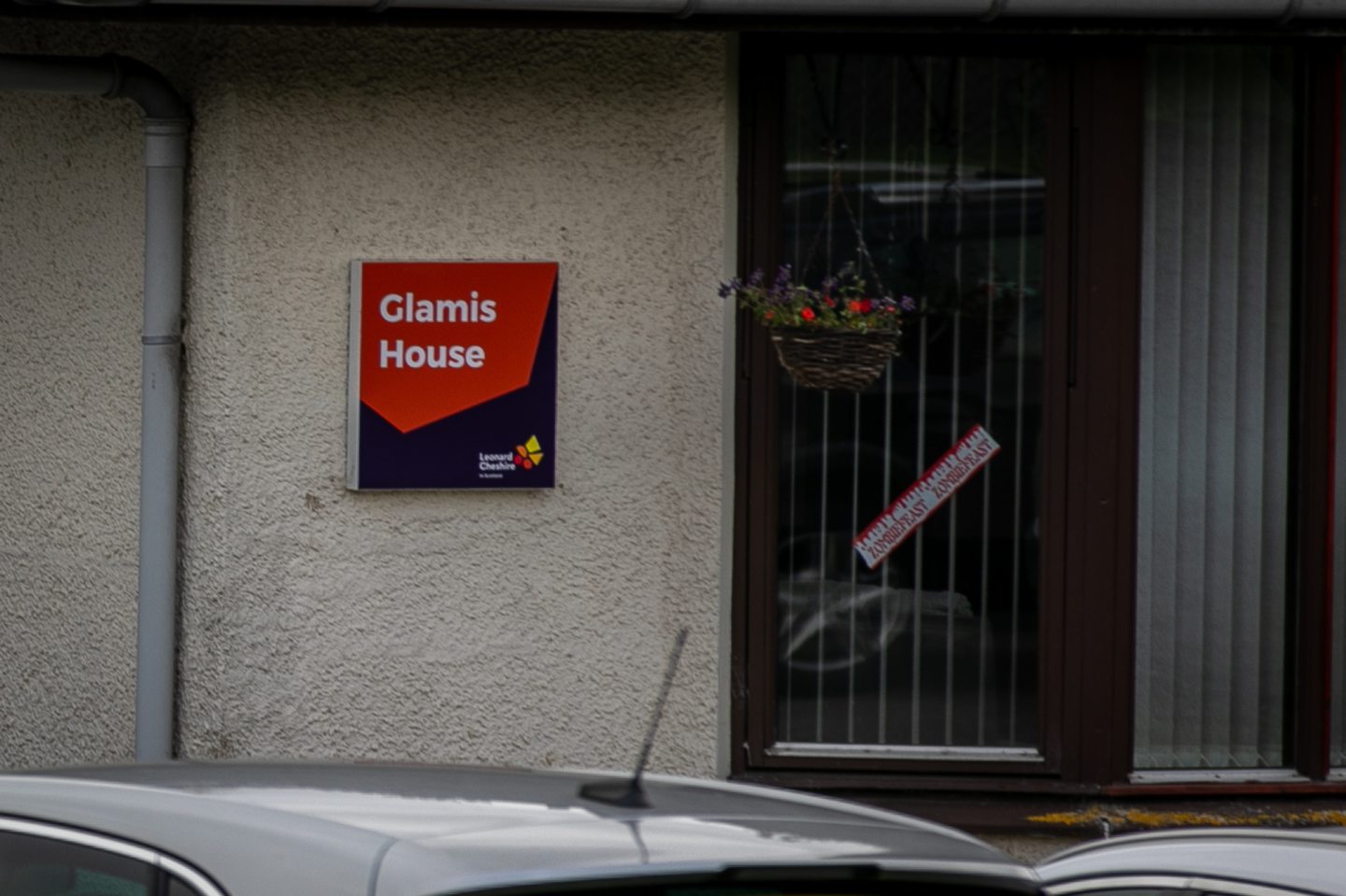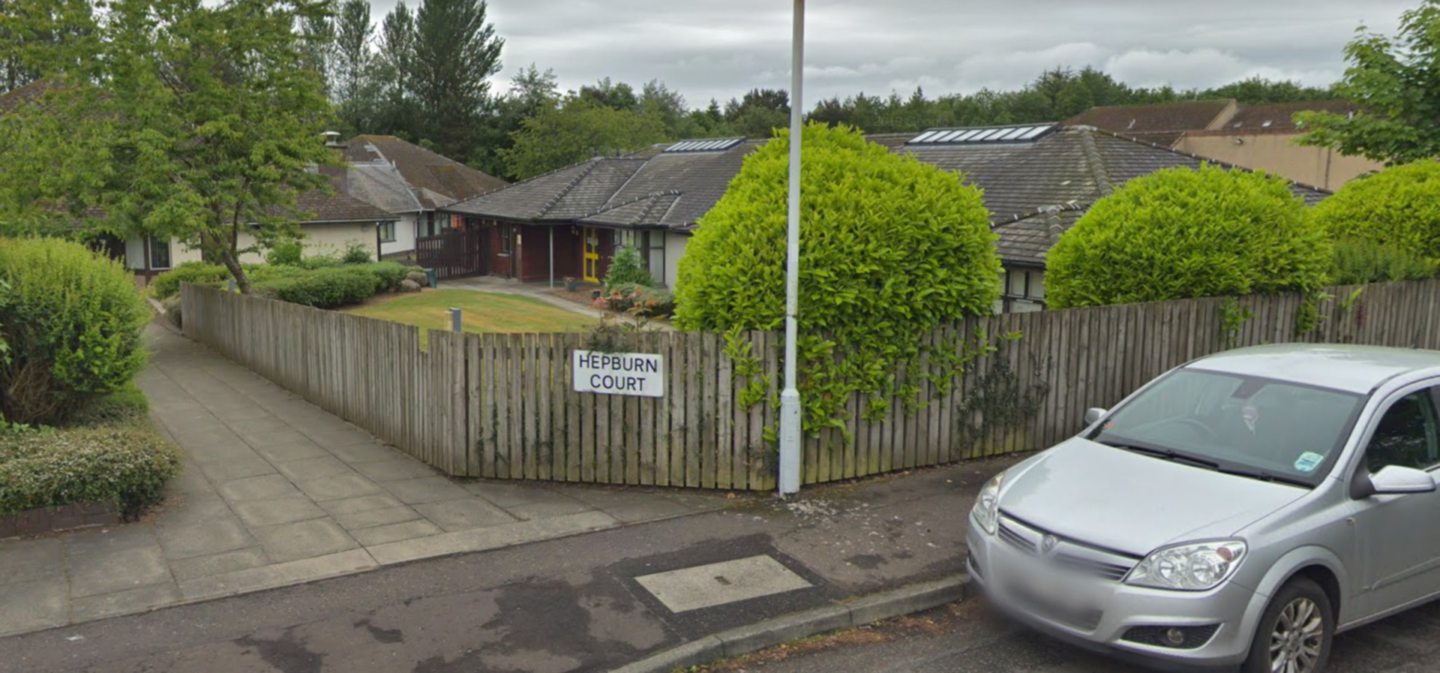
Its slick website promises quality care and independent living.
But Glamis House supported living – owned by Leonard Cheshire and situated on Blair Avenue in Glenrothes – finds itself once again in the spotlight over its failings.
Last year it was at the centre of a story about suspensions, scapegoat claims and serious neglect.
A year on, it has just over two months to show “significant improvement” or the Glamis House care service – not the care home – faces closure.
It was previously ranked as a well-performing facility, with inspection reports from 2019 positive about the care home, saying staff were well equipped to carry out their roles and take appropriate action should they witness any concerns.
But the verdict from inspectors in 2022 and 2023 has been scathing.
Last year they said this was a place where residents’ human rights had been disrespected and people’s choices “restricted with no legal basis”.
A September inspection revealed “critical” failures – “falsified” medication records among them – and accounts of psychoactive drugs being used on people without medical advice.
This week a report – based on a visit in February – highlighted several issues including a confidentiality breach, medication left unsecured in an unmanned office with an open door and a deputy manager having “no experience” working with people who have learning disabilities and complex needs.
Just how did it go so badly wrong at the service registered to provide care for up to six disabled residents?
Risk of harm
The first signs of failings at Glamis House – whose owners are paid by Fife Health and Social Care Partnership (HSCP) to provide support – emerged in April 2022 when a devastating report by the regulator identified a number of issues.
The message was clear – residents were at risk of harm.
The Care Inspectorate criticised the support provided after an unannounced visit, saying: “We identified some strengths but these were outweighed by significant weaknesses which substantially reduced people’s outcomes and experiences.”
Care plans were said to be out of date, with no evidence residents or their representatives had input into their care at Glamis House, which has been in operation for more than a decade.
Systems in place to monitor people food or fluid intake were also slammed alongside the lack of monitoring of healthcare needs.
The report said some residents went several months without being weighed.
When they were later found to have lost significant amounts of weight, no referral was made to health professionals.
Other issues included under-par protocols for ensuring health and safety, staff guidelines existing without review (those relating to medical emergencies were mentioned) and the use of negative and outdated language.
As well as overall management of the service, employees also faced criticism for a breakdown in professional boundaries.
‘Stress and distress’
The report said: “Staff shared confidential information with people using the service and this affected their relationships with staff and other people using the service.
“As a result, people experienced stress and distress.”
Inspectors also found a buzzer system used by residents to get staff support was not being monitored, with calls for help going unanswered for long periods of time.
The findings were damning – and they led to a number of requirements for improvement being put in place.
But a follow-up visit by the Care Inspectorate in May of last year found very little progress had been made and a third inspection in recent weeks was no different.
Staff shake-up at Glamis House
That’s when the blame game began.
Leonard Cheshire suspended four members of the leadership team and new managers were put in place.
When contacted by The Courier at the time, the firm said: “A new management team is now in place to ensure necessary improvements are delivered as soon as possible.
“Despite additional training, as well as support from clinical and quality teams, progress was not happening at the level we needed, with concerns remaining.”
The urgency of the situation was reaffirmed when The Courier, a day after breaking the story of the suspensions, revealed one resident had been left for 18 hours without support.
Leonard Cheshire apologised, with a spokesperson stressing the new management team had only just been put in place.
They said: “This incident was discovered by staff following an overnight shift change and reported immediately to relevant authorities.
“Such an occurrence should not have happened, and we are sorry for it.
“Since last week, we have implemented new handover procedures to stop this happening again, with additional nursing resource also starting on site to undertake spot checks throughout the day.
“The new management team at Glamis supported living has only been in place for a matter of weeks and they are addressing long-standing challenges.
“We are working closely with the Care Inspectorate, as well as other relevant authorities, on the monitoring of our progress as we systematically work to improve provision of care and support.”
The Care Inspectorate reiterated its concerns, saying: “An inspection in March 2022 and two follow-up inspections in May and September 2022 identified serious concerns in the quality of care experienced by residents at this service.
“We continue to have concerns and are monitoring the service closely.”
‘Problems ignored’
But a source told The Courier the suspended quartet felt scapegoated.
They claimed staffing issues were behind many of the issues and that concerns raised with high-level management at Leonard Cheshire were not acted on.
Our insider said: “I’ve seen a deputy manager in tears because they weren’t taking on board [what she said].
“This has been going on for a long time.
“The management team who were suspended are scapegoats for these problems that were ignored.”
So what happened next?
Leonard Cheshire – founded in 1948 by an RAF veteran of the same name and headquartered in London, employing around 3,000 people – put its faith in the new management team to bring the service up to standard.
Meanwhile, job vacancies for support workers at Glamis House were also advertised, indicating a potential increase in staffing levels.
Fife HSCP said they were working with the home to improve the situation.
We also revealed that, as well as the requirements it had already put in place (a number of improvements had to be made by October 31), the regulator had further enforcement powers it could use if the service was not reformed.
These include ordering its closure as a last resort.
Asked in September whether or not it was considering using this authority, the Care Inspectorate refused to comment.
Councillor David Graham, Fife Council’s spokesperson for health and social care, said he was monitoring the controversy.
He said: “I am aware of concerns which have been raised by the Care Inspectorate around the service which has been provided by Leonard Cheshire in Glamis House.
“I have spoken directly with the Health & Social Care Partnership and they have advised that they are continuing to support the provider to address the issues.”
On October 25, a Leonard Cheshire spokesperson insisted “good progress” had been made.
They told The Courier: “A huge amount of additional resource and senior oversight is being provided on-site at the service.
“A new management team is making good progress.”
Troubled times
Yet, six months on, Glamis House faces a bleak future.
A recent letter to Leonard Cheshire from care chiefs said: “If there is no significant improvement within the revised timescale, we intend to make a proposal to cancel your registration.”
The firm insisted its “concerted effort to deliver positive changes” was “getting results”.
It added: “The timeline for improvements has now been extended by the regulator in recognition of improvements made.
“Sector recruitment challenges have impacted on our ability to recruit to some posts.
“This has slowed our ability to embed improvements.
“As we navigate our way through complex challenges, we are working positively in partnership with the Care Inspectorate and Fife Health and Social Care Partnership to get the best outcomes for people living at this service.”
This article was originally published on Tuesday September 27 2022 and has since been updated to reflect developments in the story.














Conversation